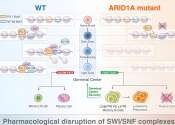New insights on B cells: Researchers explore building better antibodies and curbing autoimmune diseases
Four new studies led by Harvard Medical School researchers at Boston Children's Hospital reveal details about how B cells in the immune system churn out antibodies that become increasingly potent and specific after we're ...
Apr 12, 2024
0
36









